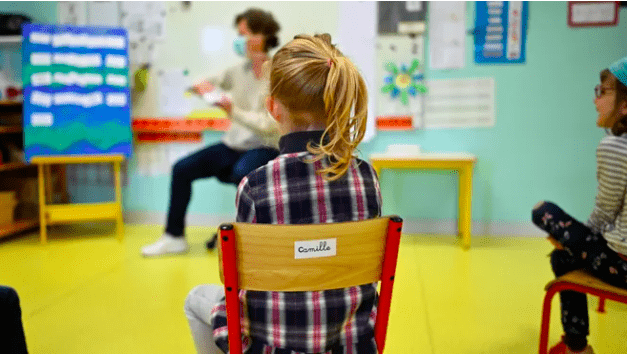Three universities in Belgium have begun mass-testing school children as part of a large-scale study aiming to better understand the rate at which Covid-19 circulates in schools.
Thousands of Belgian pupils took the first of several saliva-based tests to come on Monday morning as the Universities of Liège, Louvain and the Université Libre de Bruxelles kicked off the study.
A total of 2,400 school children in Brussels and Wallonia will be screened weekly for the coronavirus over a six-week period as part of the study, supported by the Brussels-Wallonia Federation, which is competent for education in Belgium's French-speaking community, as well as federal health institute Sciensano.
Related News
- Children 'not spared' from Covid-19 infection: study
- Rare infectious disease on the rise among children due to COVID-19
- Reopening schools on Monday is 'not without risks' in Belgium
Researchers from the three universities will study samples from the students, as well as some 200 teachers and school staff, in a total of 72 school classes.
The identities of the study's participants will be protected since the samples taken will be anonymised, according to Belgian media.
Around a hundred medical students will supervise the collection of samples from the school classes as part of the project.
The study comes amid continued uncertainty surrounding coronavirus risks in school environments as authorities strive to balance health concerns and risks with the educational imperatives.
As the country's autumn break approached, a spike in infections and a rise in the number of pupils and staff in quarantine led authorities to extend the break by two weeks in order to give understaffed schools to recover.
In a separate, smaller study also supported by Sciensano, researchers from KU Leuven found more infections among a pool of some 300 school children than what they were expecting.
While the researchers said that most of the children who were found to be infected did not get seriously ill, the study's results suggested that "children are more susceptible to catching the coronavirus than we initially thought,” Corinne Vandermeulen, KU Leuven professor, said.
Gabriela Galindo
The Brussels Times

